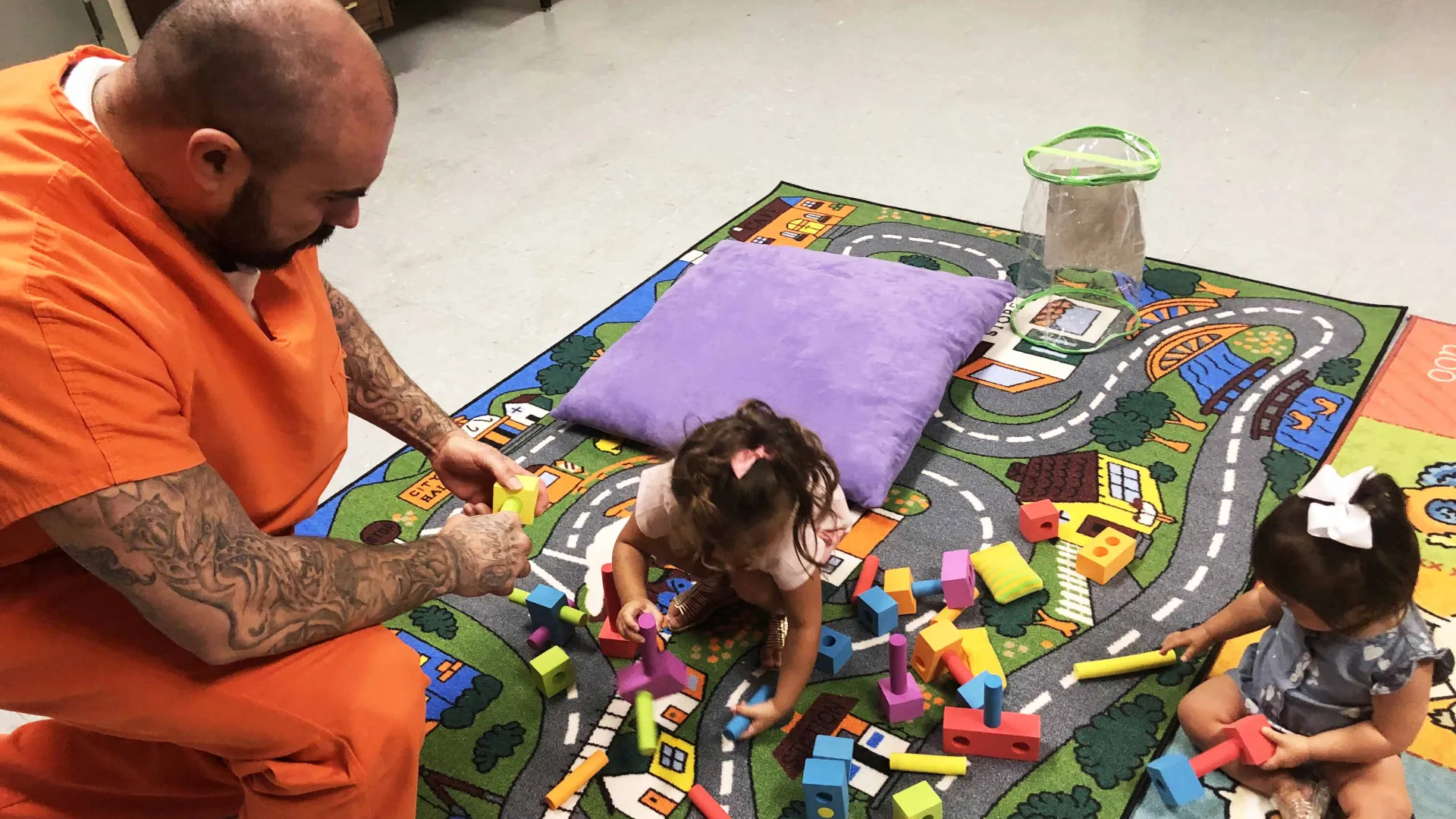Joe Gutierrez | CSUSB Office of Strategic Communication | (951) 236-4522 | joeg@csusb.edu

Faculty, staff and graduate students at the Parenting Center at Cal State San Bernardino’s Institute of Child Development and Family Relations have been offering parent education classes in the local community for the past 25 years.
In order to increase their service capacity in the community, they began working with local jails in 2008, starting with the Glen Helen Rehabilitation Center, one of four jails in San Bernardino County – and the only jail at the time that offered programming for justice-involved individuals. Members of the institute created a parent education course, and with the assistance of clinical graduate student interns, began offering the Maternal Intervention Project (MIP) to incarcerated mothers with the goal of assisting them and their children.
“There are few, if any, other programs like this one,” said Laura Kamptner, the program’s principal investigator and professor of psychology at CSUSB. “Historically, most jails have had minimal programming, which is one of the factors that’s contributed to high recidivism rates. Glen Helen Rehabilitation Center has been very unique in that respect because they’ve offered justice-involved individuals actual classes. The type of parent education class we offer there is very unique as well. Fortunately, laws have recently changed and all jails are now required to provide access to programming.”
The partnership between CSUSB and the San Bernardino County Sheriff’s Department has grown over the years, and projects have expanded dramatically under the direction of Christopher Vallejo, a 2014 graduate of CSUSB’s M.S. program in clinical counseling.
The MIP project is now called the “Parental Intervention Project” (PIP), and consists of an attachment-based, psychotherapeutic parent education course for incarcerated mothers and fathers to help improve their ability to provide positive parenting and a more stable home environment for their children. PIP also includes a weekly child visitation program, clinical counseling/case management, cognitive skills/anger management classes, the Parent & Child Connection reading program, and transitional care plans for incarcerated individuals.
There are many goals of PIP, including strengthening family relationships, mitigating factors leading to self-destructive life patterns, reducing recidivism, breaking the intergenerational cycle of incarceration and promoting the overall healthy functioning of justice-involved individuals. Graduate student interns from CSUSB and California Baptist University assist in the facilitation of this research-based programming.
Kamptner says that she initially became involved in community parent education because she realized many years ago that research studies in her field, including child development and early intervention, clearly demonstrate that the early caregiving environment has a profound, lifelong impact on children’s development, including brain development and mental health.
“There are lots of myths and misbeliefs about children and childrearing in our culture,” said Kamptner, “and increased parenting knowledge helps to reduce child abuse and neglect. In addition, most parents have had little formal education or training in positive parenting, leaving them relatively unprepared for what is probably the most important and most challenging job of their lives. Therefore, I felt that one way to contribute to helping better the lives of children (and the adults they would eventually become) – and help parents in this most challenging job – would be to put more effort toward community parent education. Research shows that when we can work with people to change their attitude, help them to understand themselves and help them to have empathy for their children, then we’re more likely to see long-term behavior changes as opposed to a parenting class that just focuses on teaching them punishment techniques to keep their kids in line.”
More recently, Vallejo and colleague Evan Thomas, in partnership with the Glen Helen Rehabilitation Center administrative team, university stakeholders and the San Bernardino County Sheriff’s Department, crafted the newest evolution of the PIP project called the “FAITHS (Family Attachment Interventions Through Healing Solutions) Throughcare Program,” where the overall goal is to offer justice-involved individuals and their families in-custody and out-of-custody psychotherapeutic interventions and comprehensive services to reduce recidivism.
In addition to offering services to many different types of families, FAITHS and its partners will also focus on the veteran population, including working with the community to find solutions for the struggles perpetuating homelessness, and work to address racial inequity as a health crisis in San Bernardino County. This new program is currently awaiting final approval.
Children of incarcerated parents are at three times the risk of becoming involved in the criminal justice system – compared to children whose parents were never incarcerated – according to Kamptner, who says that incarcerated parents typically have difficult pre-incarceration histories, including abuse, neglect, substance abuse, negative early parenting, mental health challenges and poverty, to name a few.
“The benefits of parent education for this population include increasing positive parenting practices, improving family stability and strengthening family bonds – all of which will help to improve child outcomes and reduce recidivism,” said Kamptner. “Improved positive parenting practices will help stop the intergenerational cycle of incarceration.”
According to Kamptner, assessments of the PIP program demonstrate a significant improvement in parents’ reported sense of efficacy and satisfaction in the parenting role; their knowledge, skills and behavior as a parent; their understanding of child development; their knowledge of alternatives to using corporal punishment; their ability to establish appropriate parent-child boundaries; and they were less likely to view their child’s independence as a threat. Consistent with current research literature, the data support that a trauma-informed, attachment-based, psychotherapeutic parenting class paired with teaching parents developmentally appropriate, positive parenting practices can successfully impact parents’ positive outcomes.
To learn more, contact Laura Kamptner at kamptner@csusb.edu or visit the CSUSB Institute for Child Development and Family Relations website.